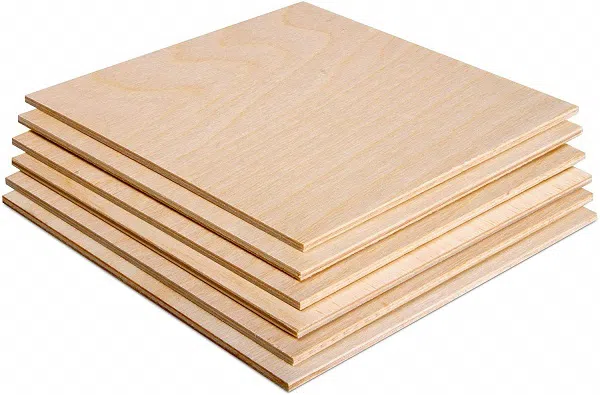Firstly, it is extremely strong and durable. It can withstand a lot of wear and tear, making it ideal for high-traffic areas. As well as offering strength and resilience, these Hardwood Plywood sheets offer a host of other long-lasting benefits.
Key Features
- checkUse in walls, floors & roofs
- checkStructural grade Class 2
- checkFSC/PEFC Certified
- checkCE marked
- checkDesigned to resist warping and bending
- checkSustainably sourced
Where weight support counts, use 18mm Structural Hardwood Plywood Sheets. Suitable for a wide range of building applications, these high-grade plywood sheets do a phenomenal job of load-bearing in flooring and roofing applications. The sheets comprise multiple layers of thin veneer, with each adjacent layer being rotated from 45-90 degrees to ensure that the wood grain is going in different directions. This process of “cross graining” endows the sheets with a strength which is perfect for floor, wall and roof applications.
18mm Hardwood Plywood Applications
When it comes to plywood, one of the most important things to consider is its strength. After all, this material is often used in construction and other applications where it needs to be able to support a lot of weight. Cross graining is one of the key features that gives plywood its strength.
The cross-layered timber veneered panel provides consistent strength and stability to both interior and exterior applications (such as external wall panels and claddings, as long as all edges are sealed). If you are looking for an exterior grade plywood sheet, our Marine Plywood is the ultimate hardwood external grade in terms of strength and weatherproofing.
We recommend using Structural Hardwood Plywood in the following applications:
- Furniture
- Bath panelling
- Flooring
- Sheds
- Packing cases
- Storage boxes
- Trailer linings
- Interior vehicle building
- General joinery
18mm Plywood Key Benefits
Whilst non-structural plywood is generally good-quality, it does not offer an inch of what structural plywood does in the way of structural use. There are many reasons why hardwood structural plywood is such a popular choice. Let’s explore some of these below:
- Versatility – 18mm plywood can be used in many general purpose applications, such as internal and external joinery (providing it is properly sealed). The sheets are also easy to work with and can be cut, drilled and shaped to suit your needs.
- Strength – Thanks to the cross-graining process by which it is manufactured, it has a high strength-to-weight ratio. It also provides a high level of impact resistance.
- Complies to EN314-2 Class 2 glue
- Service class EN636 Class 2
- CE marked
- Durability – Designed to resist warping and bending
- Sustainable- Plywood is an authentic and natural product made from responsibly sourced materials that have FSC/PEFC chain of custody certification.
- Appearance – Due to its appealing aesthetic appearance and smooth sanded surface, plywood can provide a sleek finish when making furniture such as doors and cabinets.
18mm Structural Hardwood
Hardwood Plywood is an engineered wood made by slicing wood into thin veneers which are heat bonded with resin adhesive in a process called cross graining. So, what exactly is cross graining? Essentially, it is the practice of orienting the grain of each plywood layer at right angles to the one below it. This creates a criss-cross pattern that improves strength and rigidity.
There are a few key reasons why cross graining is so essential in the creation process of plywood:
- It helps to distribute weight more evenly across the surface of the material. This is because each layer is supporting the one above it, rather than all the weight being concentrated in one area.
- Cross graining makes plywood less likely to warp or deform over time. When all the grain is going in the same direction, it is easier for the plywood to bow or twist out of shape. But when the grain is alternating, it prevents warping, making it much more difficult for the plywood to deform.
- Cross graining gives plywood added strength in both tension and compression. This means that it can withstand more force without breaking or sagging.


